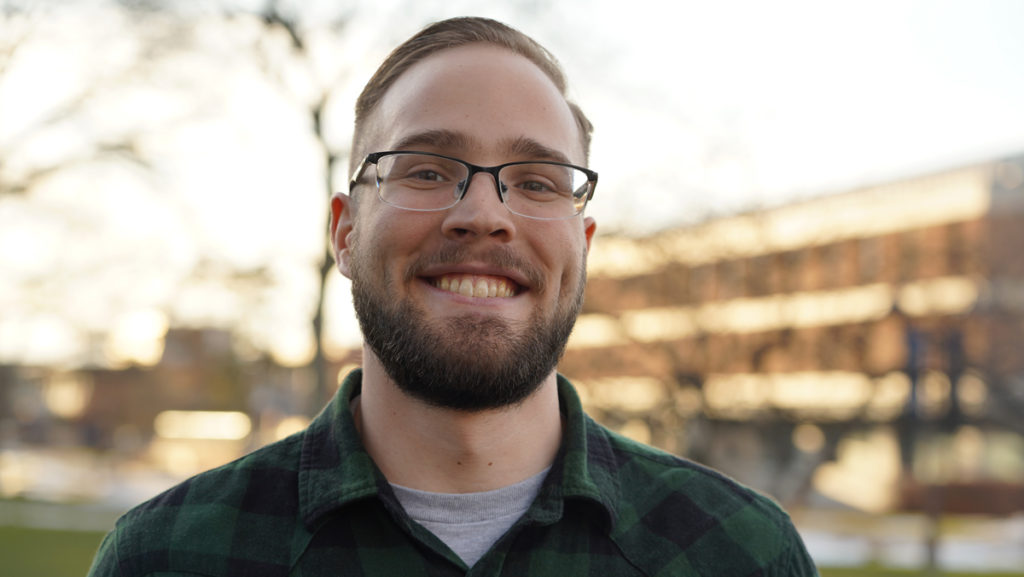On December 12, 1941, five days after the attack on Pearl Harbor, The Ithacan published an address by Ithaca College President Leonard Job to the student body. In his address, Job stated, “America, as it has always done, will rise with the utmost confidence to meet fully all demands which the world crisis has thrust upon her… This emergency may be of long duration and if it is, there will be recognized an ever-increasing need for well-trained men and women…”
By spring 1942, Ithaca College’s yearbook, The Cayugan, included a special section on students who were serving in the armed forces. There were 16 students represented.
Throughout the past 128 years, Ithaca College students and their organizations have experienced ups and downs. Protests, campus tragedies and international wars are among the forces that have at times influenced the student experience at Ithaca College.
Even pandemics are not an unprecedented reality for our campus community. In 1903, a typhoid epidemic devastated Ithaca, forced students to return to their homes and all public gatherings were banned. The Ithaca Conservatory of Music, what would later become Ithaca College, was left almost bankrupt. By 1909, however, the college had paid off its debts, thanks in part to the support of community partners including Herbert Hillard, a former director of the Piano Department. By 1910, Ithaca had a new academic program, The Institution of Public School Music, a nascent alumni organization, and additional student organizations such as the Self-Government Association, an early student government board.
Records of many of these events have been preserved by Ithaca College in its archive. The archive includes digital copies of The Ithacan, and its predecessor Once-A-Week, going back to 1926.
An interesting project for student organization leaders and curious minds in general during this period of social distancing is to explore this digital archive and discover what events helped to create current student groups and shape campus life as a whole. In part, it will be discovered that the challenges we are facing have been endured before. Many students undoubtedly feel that their lives have been uprooted by COVID-19. Their time on campus has been cut short. This feeling may also have been present for past generations of Ithaca College students who lived through tumultuous times.
A project I have worked on over the past several weeks is exploring the history of Hillel at Ithaca College and creating a paper summarizing the organization’s past. I uncovered many stories that had been forgotten: Hillel’s origins on campus were much earlier than any current professional staff member thought, dating all the way back to 1939. Jewish chaplains have also been active on campus since at least 1963. This was only two years after the present Ithaca College campus was created with the move to the South Hill in 1961. Other interesting facts about Hillel include that it has sponsored a Seder on campus for 55 years and that, for many years, the organization put on theater performances.
Challenges also occurred. During World War II, Hillel appears to have gone dormant on campus as enrollment declined due to the war. During the early 1960s, members of Cornell Hillel and Ithaca College Hillel had significant personal clashes surrounding how the organization should be run, ultimately causing a split between the two campuses chapters.
This new history of Hillel has already engaged alumni across generations and drawn interest from local organizations such as the History Center. Many other student organizations also have rich histories on campus just waiting to be uncovered. Histories that reveal stories of how students have overcome challenges and given back to their community.
By learning what other students experienced, we may find some inspiration to help us get through today’s current challenges. Ithaca College has existed for over 128 years, and this time has not always been easy. Just as our students, faculty, and staff have guided our institution before, today’s challenges also present us with an opportunity to reflect and ask how we can best carry on and help our community. To return to the words of President Job, “The part each of us is to play in this great emergency is not yet clear… Each must consider himself as a part of the whole and must await the time when it is made clear what his best opportunity for service is.”
While the language is a bit dated, the message rings true today that everyone can be of service to others.
Students, many of you may feel like your lives have been irrevocably disrupted. Seniors, your college graduation, a day you have been preparing for since your first years of high school, is now unquestionably not how you imagined it would be. For students of all years, your internship and job prospects over the coming months may be significantly altered. Some of you may be facing unique challenges that are not known to your peers.
At this moment, it is important to allow yourself space for grief. Mourn for opportunities that have closed, plans that have been upended, and changes that are unwelcome. After you have given yourself space to mourn, then remember our Ithaca College family has been through similar challenges before. The Classes of ’42, ’43, ’44 and ’45 similarly did not know what the future had in store for them. Their lives and plans were in a related way derailed by forces beyond their control. Some, it must be remembered, had their lives taken and faced risks we can not imagine. Yet, for most life returned to normal after the war, and they enjoyed many more accomplishments and celebrations. So too I wish for all of you to find strength in these lessons from the past and to go on to have many more accomplishments and happy occasions to celebrate.














